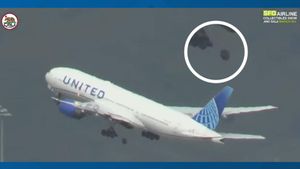Manchester United's struggles deepened on Sunday as they faced yet another home defeat, this time at the hands of Crystal Palace, who secured a 2-0 victory at Old Trafford. The two goals from Jean-Philippe Mateta were enough to claim victory for the visiting side, marking United's seventh home league loss of the season. This miserable performance raises serious questions about the managerial future of Ruben Amorim.
Despite the team finding themselves with momentum earlier this season, where they enjoyed three back-to-back wins across competitions, the reality check against Palace was harsh. It’s worth noting this defeat marks the worst start for United since the 1893-94 campaign. The once great Manchester United, under the new management of Amorim, is now 13th in the Premier League table, with only eight victories to their name during this campaign.
“It’s really hard season for the fans,” said Amorim, acknowledging the frustration felt by supporters who once cheered for title contenders. The United manager, who has endured five home league losses with his club, reflected on the struggles with the following admission, “Better days will come, but when you continue to lose, especially at home, you have the feeling the small improvement is nothing.”
The match showcased Amorim's tactical decisions, which did not blend well. He opted for Kobbie Mainoo as a false nine, sidelining both Rasmus Hojlund and Joshua Zirkzee. This unfamiliar arrangement bore little fruit as United lacked the cutting edge needed to convert possession and chances, managing only two shots on target from 17 attempts. The old adage, “familiarity breeds contempt,” felt particularly applicable as United fans experienced déjà vu from earlier performances this season.
Mateta opened the scoring for Crystal Palace, finding the net after benefitting from defensive lapses on United's part. After United had attempted to regain control with substitutions, it became clear the night was not theirs. The second goal, scored by Mateta toward the end of the game, sealed the fate of the Red Devils and exemplified the lack of defensive cohesion within their ranks.
Watched by club owner Sir Jim Ratcliffe, the match laid bare the pressing issues United must address. Hallmarks of previous regimes seem entrenched, leading to murmurs among commentators and analysts about the future of Amorim. On the Rest Is Football podcast, pundit Alan Shearer expressed subdued hope for Amorim stating, “He has to be cut some slack...he's taking on problems deep-rooted at the club.” Shearer went on to say, “But I think till the end of the season, so long as the worst doesn’t happen, wouldn’t see them sucked down to relegation.”
Lineker added, “You have to question for how long the hierarchy will keep faith.” With the transfer window closing, the expectation looms large for potential signings, including Mathys Tel from Bayern Munich, which United hopes will bolster their attacking line.
The defensive weaknesses shown both against Palace and throughout the season, which led to more missed opportunities, have taken their toll on the players' morale. “During the game, I felt the team did some things well,” Amorim reflected post-match. Yet, the underlying message resonates loud, with the consistent failure to score remaining problematic. United currently leads the league for failing to score in the first half of their matches, reflecting the team’s dire position.
With Lisandro Martinez suffering injury concerns during this turbulent match, the need for improvement becomes even more urgent. The injury occurred as the defender collided with Ismaila Sarr, raising questions about the squad’s depth as they continue to juggle form and fitness challenges.
“It’s hard on us. He’s a great player, and we need him,” said Amorim about Martinez. The manager must now marshal both optimism and urgency among the ranks, as his leaders navigate through this testing season.
Basking in the glow of past successes is no longer feasible; united under Amorim, the players need to refocus their goals. With any signs of improvement, their focus remains on the next fixtures, necessitating results to shift the narrative. Amorim recognized the challenge but continues to carry sparks of belief, stating: “Football can change, we had momentum before this game; it’s gone down again, but I will prepare for the next game.”
Change is coming, whether through the strategic window soon closing or adaptability within current tactics; the clock is ticking for Amorim as he seeks to reverse this dismal trend at one of football’s greatest clubs.



